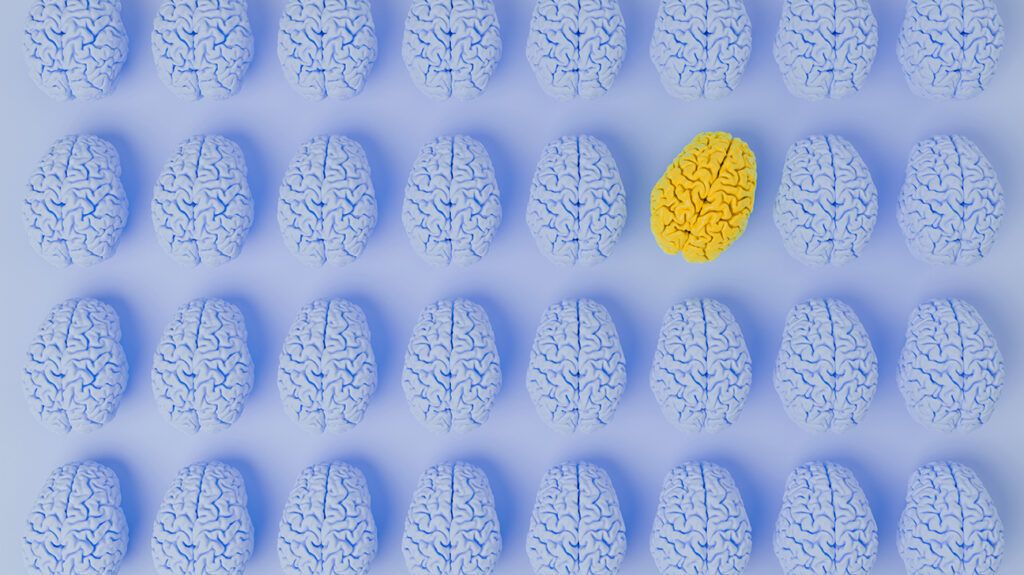While having ADHD can change the way intelligence is expressed, ADHD and IQ are two separate characteristics.

People with attention deficit hyperactivity disorder (ADHD) can have difficulty with attention and memory. To some people, this may make them seem less intelligent than average.
On the other hand, they can also appear smarter that others because of their enhanced powers of observation and the ability to hyperfocus on topics of interest.
However, even though ADHD and IQ are two separate qualities, they can sometimes impact each other.
ADHD is a neurological disorder that interferes with sustaining focus and contributes to hyperactive and impulsive behavior. It affects an estimated 8.4% of children and 2.5% of adults.
If you have ADHD, you can have any level of intelligence. Your IQ might range from an intellectual disability to typical or above.
Brain scans reveal differences in the brain changes associated with ADHD versus intelligence, and that these changes exist independently from each other.
A
Meanwhile, a
Can you be gifted and have ADHD?
Gifted individuals with a diagnosis like a learning or developmental disorder are considered “twice exceptional” (2e). ADHD is an example of an exceptionality you can have while also being gifted.
So yes, you can be gifted and have ADHD.
The impact of ADHD on IQ
Even though ADHD and high IQ do coexist, ADHD symptoms can interfere with IQ testing. A
ADHD can also interfere with individual areas of performance, such as executive functioning. People with high IQs and ADHD can experience executive functioning deficits, compared with peers with high IQs but no ADHD, as demonstrated by a 2010 study.
How high IQ can hide ADHD
Can ADHD be masked by intelligence? It’s possible for a 2e person with ADHD to seem “typical.” This is because ADHD and high IQ can compensate for each other.
For example, a 2e student may succumb to the interference of ADHD and daydream while the teacher is talking, but then be able to independently figure out the lesson material afterward.
Meanwhile if they’ve missed some instructions or content, they may earn only average marks. Because they don’t seem to struggle or excel, they seem average. The ADHD and high IQ have masked each other.
A
This may not seem like a bad thing. However, the masking combination of ADHD and high IQ can result in delayed ADHD diagnosis and treatment. Untreated ADHD can cause difficulties later in school as the material becomes more difficult.
Trained mental health clinicians using professional diagnostic tools don’t usually make misdiagnoses.
However, for friends and family members, it can be tricky to tell the difference between ADHD and high IQ based on the shared characteristics. They can look the same but some may have different underlying causes.
Trouble with focus
- Gifted: boredom, lack of challenge or interest
- ADHD: neurotransmitter difference
Lacking motivation
- Gifted: boredom, doesn’t see or agree with relevance
- ADHD: overwhelmed
Hyperactivity
- Gifted: psychomotor overexcitability
- ADHD: neurotransmitter difference
Social challenges
- Gifted: differences in interests and priorities
- ADHD: interference from impulsive behaviors, misses social cues
Curiosity
- Gifted: intellectual overexcitability
- ADHD: impulsivity
Other shared traits
Some additional shared traits of people with ADHD and those with high IQ include:
- creativity
- sense of humor
- spontaneity
- enthusiasm
- anxiety
- emotional intensity
The myth persists that people with ADHD are smarter than average. Some parents may take comfort in this idea when their children are diagnosed with ADHD.
However, it’s important to remember that ADHD and IQ exist independently from one another and are not connected.
Assuming that ADHD behaviors are nothing more than signs of intelligence may delay support and treatment for the affected individual.
It’s also important to remember that the cognitive challenges of ADHD are not a sign of low intelligence. A
Another
If you or someone you know has ADHD, it helps to understand that this diagnosis is separate from level of intelligence. Forgetfulness and lack of focus doesn’t mean a person isn’t bright enough to learn and achieve.
Meanwhile, impressive hyperfocus isn’t necessarily a sign that there’s no need for support in other areas.
ADHD can exist with any level of intelligence. Sometimes parents and teachers miss the presence of ADHD and high IQ because the two qualities can mask each other.
It’s important to assess ADHD separately from IQ to get a clear understanding of the full impact of this diagnosis. If it’s unclear whether ADHD or high IQ are causing the signs you’re experiencing or observing, a mental health specialist experienced with 2e diagnosis can help.
